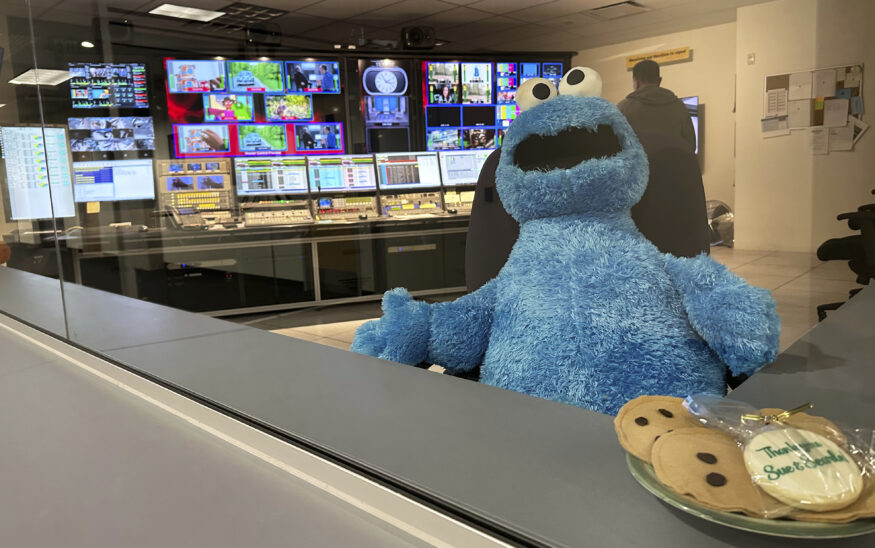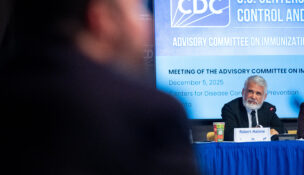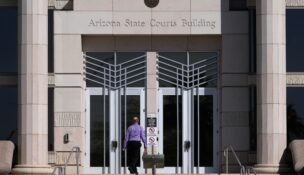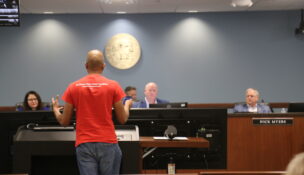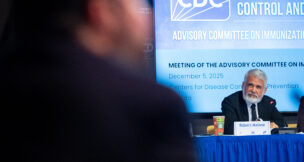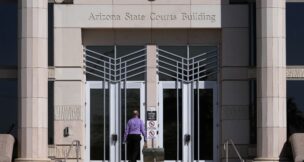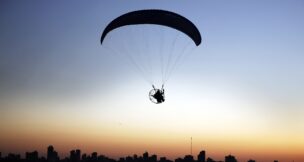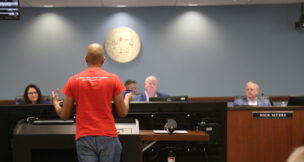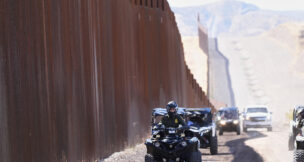Arizona PBS faces potential FCC probe over alleged bias in 2022 election
Jamar Younger Arizona Capitol Times//August 22, 2025//
Arizona PBS faces potential FCC probe over alleged bias in 2022 election
Jamar Younger Arizona Capitol Times//August 22, 2025//
Key Points:
-
Senate President Warren Petersen has asked the FCC to investigate Arizona PBS
-
Arizona PBS allegedly favored Gov. Katie Hobbs over Kari Lake in 2022 election
-
A specialist says TV the station is unlikely to have its license revoked
Senate President Warren Petersen wants the Federal Communications Commission to investigate and potentially revoke Arizona PBS’s broadcast license after an Arizona Republic story revealed the station appeared to favor Gov. Katie Hobbs over Republican gubernatorial candidate Kari Lake in 2022.
However, if the FCC were to take any action against the Phoenix public television station, it would more likely result in a fine than a revocation of its license due to First Amendment protections.
And a fine for a local station would also stray from the usual precedent, since the FCC usually focuses on the major networks, said Scott Flick, an attorney with Washington D.C.-based Pillsbury Winthrop Shaw Pittman LLP, who heads the firm’s communications practice.
If the FCC did investigate, the agency would have to find that Arizona PBS violated its requirement to operate in the public interest, Flick said.
Petersen sent a letter to FCC Chairman Brendan Carr on Aug. 12 claiming the station broke a longstanding tradition and a contractual rule with the Citizens Clean Elections Commission, which is authorized by state law to host the debates.
The rule called for the station to offer a one-on-one interview to the candidate who agreed to debate when their opponent declines to participate. Instead, the station offered interviews to both Hobbs and Lake.
“Arizona PBS broke this long-standing debate tradition and its contractual obligations for political reasons during the 2022 general election for governor. Like she had during the primary, Katie Hobbs ducked the debate with her opponent, Kari Lake,” Petersen said in the letter.
Both The Arizona Republic story and Petersen’s letter highlighted how the decision to offer interviews to both candidates was influenced by Arizona State University President Michael Crow and Mi-Ai Parrish, managing director of ASU’s Media Enterprise, which oversees the station.
ASU holds the station’s broadcast license.
Petersen’s letter cited a 1998 U.S. Supreme Court ruling that stated “a broadcaster cannot grant or deny access to a candidate debate on the basis of whether it agrees with a candidate’s views” because such viewpoint discrimination would present “an inevitability of skewing the electoral dialogue.”
“Unlike the PBS station before the Supreme Court, Arizona PBS’s actions were not “in good faith;” instead, they were “the result of political pressure from … inside” Arizona PBS and were “an attempted manipulation of the political process,” according to Petersen’s letter.
Petersen’s complaint would likely fall under the FCC’s news distortion policy. This previously dormant rule was resurrected earlier this year when the agency reinstated a complaint against CBS News’ “60 Minutes” after an interview with former Vice President Kamala Harris, Flick said.
“If they basically said that you had interviewed one of the candidates and edited it in a way that made the candidate look better or made it look worse, that would be similar to what the accusation is about the 60 Minutes interview,” he said.
Petersen’s letter referred to the “60 Minutes” interview, along with ABC News’ election debate between former President Joe Biden and Republican candidate Donald Trump, which is also the target of a reinstated FCC complaint.
However, the complaint request against Arizona PBS doesn’t appear to reach that threshold since Hobbs and Lake were both offered interviews, Flick said.
“The FCC requires that licensees operate in the public interest, which includes, obviously, providing local news and information,” he said.
Revocations are even more rare and would likely be linked to a station operator committing a more “horrific” crime than violating the news distortion policy, especially since broadcasters are protected by the First Amendment and any revocation could be challenged in court, he said.
“I’m not sure there’s anyone alive today that could point to a license revocation under the news distortion rule,” he said.
Arizona PBS alluded to its licensing requirements in a statement posted on a webpage explaining why the station decided to offer both candidates an interview.
“When Hobbs decided not to debate Lake, the Clean Election Commission’s plan to proceed with a one-party debate conflicted with Arizona PBS’s licensing requirements,” according to the webpage. “Arizona PBS was prepared to move ahead with a different format with the Clean Elections Commission to allow each candidate to speak and be interviewed about their candidacy on Arizona PBS. Hobbs chose to accept the interview invitation. Lake ultimately decided not to do so.”
Although an investigation may appear unlikely, there has still been an increase in these investigations since Donald Trump reclaimed the presidency in January.
“There’s certainly an uptick in them,” Flick said. “The fact that none have led to a resolution so far has led many people to state that it’s more about keeping pressure on broadcasters to be careful about what content they air than it is to take away their licenses.”

